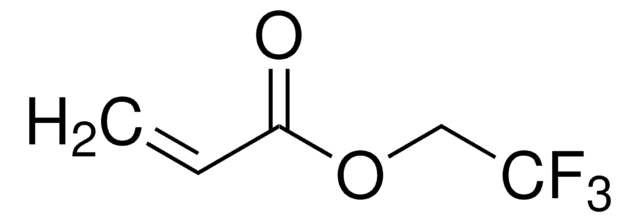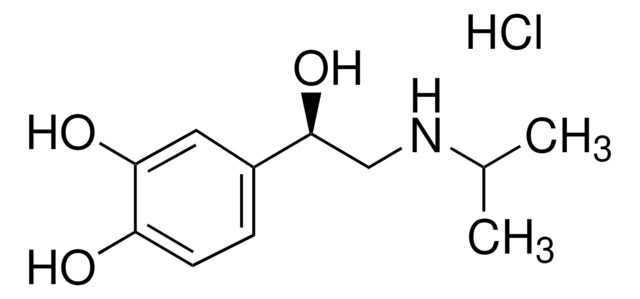369144
2-(Trifluoromethyl)acrylic acid
98%
Synonyme(s) :
TFMAA
About This Item
Produits recommandés
Pureté
98%
Pf
51-52 °C (lit.)
Chaîne SMILES
OC(=O)C(=C)C(F)(F)F
InChI
1S/C4H3F3O2/c1-2(3(8)9)4(5,6)7/h1H2,(H,8,9)
Clé InChI
VLSRKCIBHNJFHA-UHFFFAOYSA-N
Application
Mention d'avertissement
Danger
Mentions de danger
Classification des risques
Skin Corr. 1B
Code de la classe de stockage
8A - Combustible corrosive hazardous materials
Classe de danger pour l'eau (WGK)
WGK 3
Point d'éclair (°F)
179.6 °F - closed cup
Point d'éclair (°C)
82 °C - closed cup
Équipement de protection individuelle
Eyeshields, Faceshields, Gloves, type P3 (EN 143) respirator cartridges
Certificats d'analyse (COA)
Recherchez un Certificats d'analyse (COA) en saisissant le numéro de lot du produit. Les numéros de lot figurent sur l'étiquette du produit après les mots "Lot" ou "Batch".
Déjà en possession de ce produit ?
Retrouvez la documentation relative aux produits que vous avez récemment achetés dans la Bibliothèque de documents.
Les clients ont également consulté
Notre équipe de scientifiques dispose d'une expérience dans tous les secteurs de la recherche, notamment en sciences de la vie, science des matériaux, synthèse chimique, chromatographie, analyse et dans de nombreux autres domaines..
Contacter notre Service technique









